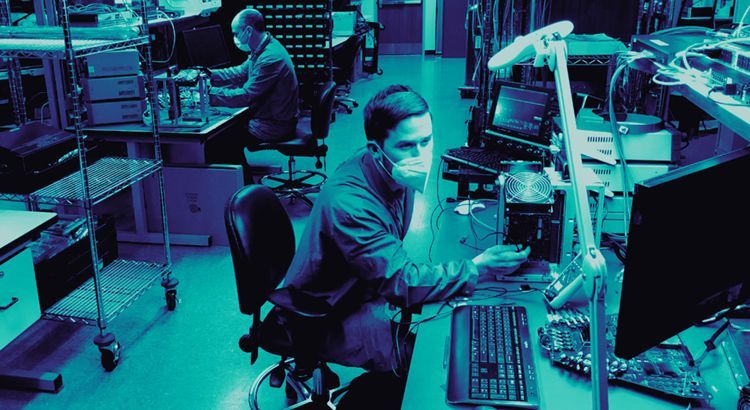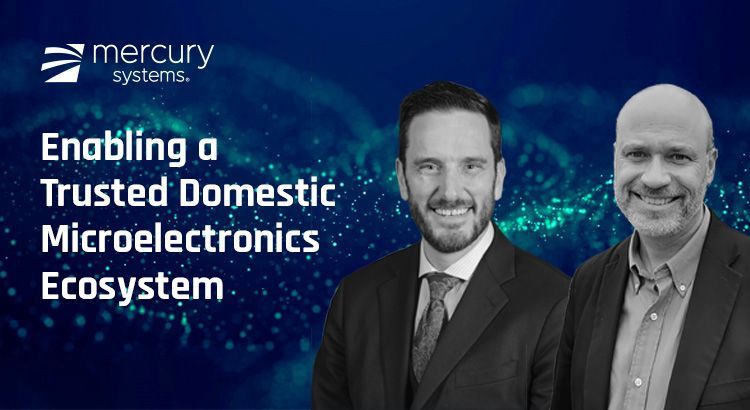-
APPLICATIONSARTIFICIAL INTELLIGENCEAVIONICS AND FLIGHT SAFETYC4ISRRADAR AND ELECTRONIC WARFARESECURE-PROCESSINGJOINT ALL-DOMAIN
-
DOMAINSLANDSEAAIRSPACECYBERSPACE
-
PRODUCTSAPPLICATION-READY SUBSYSTEMSMISSION-CRITICAL DISPLAYSRUGGED SERVERS AND SUBSYSTEMSRADAR TESTING AND TRAININGDATA STORAGE AND TRANSFERBOARDSMICROELECTRONIC COMPONENTSRF, MICROWAVE, MIXED SIGNAL
-
PARTNERSINTELNVIDIAXILINXMICRON
-
MERCURYCULTURECOVID-19THOUGHT LEADERSHIPSUPPLY CHAIN

Bridging the Gap to the Next Normal
Stephanie Georges, Senior Vice President & Chief Marketing Officer
May 8, 2020
One of the more difficult aspects of communicating in crisis is identifying that moment when you are leaving one phase of a crisis and entering the next. As critical as navigating through crisis, you must also anticipate traversing into a new phase. You’ve got your head down, subsumed by the battle at hand, and suddenly you feel something has begun shifting. You then realize what you are doing and how you are communicating to your customers, employees, shareholders and partners needs to be different.
When you anticipate adeptly, you are able to “play ahead.” This provides the opportunity to adjust to the change emerging, allows you to continue to build on the trust you have gained, and catalyze momentum towards creating a new normal. In order to accomplish this in ways that honor both the integrity of your purpose and the long-standing relationships you have cultivated with customers and stakeholders, you need to keep the following in mind.
Stick to your goals. When it became clear COVID-19 had moved from someone else’s problem to our crisis, we aligned ourselves with four goals we wanted to guide us through the chaos. Over the past 90 days, we have leaned heavily on those goals and they have allowed us to move decisively and build trust. They remain our North Star.
Listen actively. The feedback loop is critical to recognizing that your communications need to evolve. Without actively listening to your employees, you risk missing important cues, or going in the wrong direction with your communications. Similarly, shifting your narrative either too quickly or too slowly can lead to confusion, at best, a loss of trust, at worst. Your cadence needs to be in tune and tuned in to build trust. Communicate directly, share timely, and solicit feedback—then acknowledge with transparency and action.
Look ahead. As our course began to steady, we recognized a shift in tone, questions, dialogue and concerns from our employees. Whereas initially our teams wanted to hear clear, decisive actions were being taken, new questions were emerging: How can we best operate in this new environment? Is our company financially stable? Are there tools that can help us operate more effectively? How will we come back to the workplace?
Provide hope. At Mercury, we are calling the transition from crisis to continuity “building a bridge to the next normal.” We understood we must stay ahead of our communications needs as team members became more comfortable with our immediate response strategy. While our goals remained the same, our communications strategy needed to provide hope and a vision for the future, to be sensitive to unique and individual challenges that our teams are facing, and we knew the next phase would be even more challenging than the previous.
Acknowledge change. People are different and have different reactions to working remotely—it’s not for everyone. We introduced new IT resources to make working from home easier; we began hosting webinars that allowed our team members to learn about resources in our new environment; we provided more clarity around business progress in our weekly calls; we posted inspirational posters and messages at our manufacturing sites; we reimagined our All-Hands meeting; and we launched Mercury Moments—stories of our culture and values in action by our team members, to name a few.
And most importantly, continue to link Purpose to all you do. Our Purpose, Innovation That Matters, along with our unique culture and values, continues to be at the heart of our communication as we begin to build our bridge. Our commitment to our culture and values made our responses to this crisis and our subsequent transitioning to our newest normal a natural extension of our communication and messaging strategies during these unsettled times.
Next, how we came to a decision that now was the time to tell our story externally putting purpose and people at the center by reinforcing our commitment to “Innovation That Matters. For People who Matter.”







 Enabling a Trusted Domestic Microelectronics Ecosystem
Enabling a Trusted Domestic Microelectronics Ecosystem